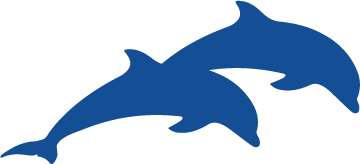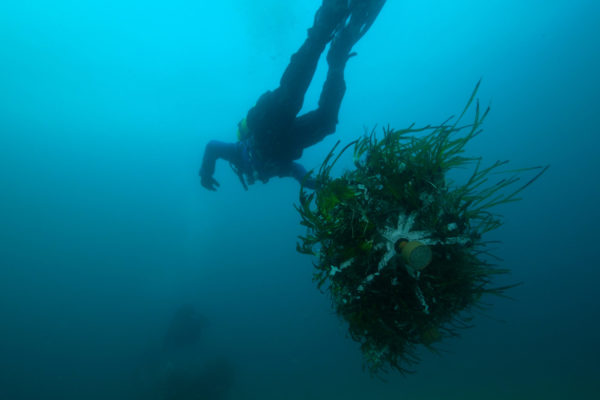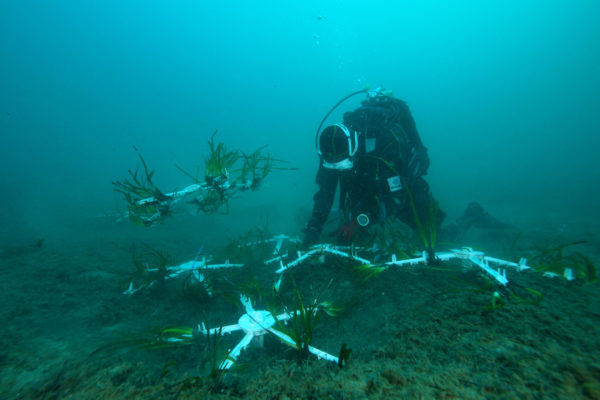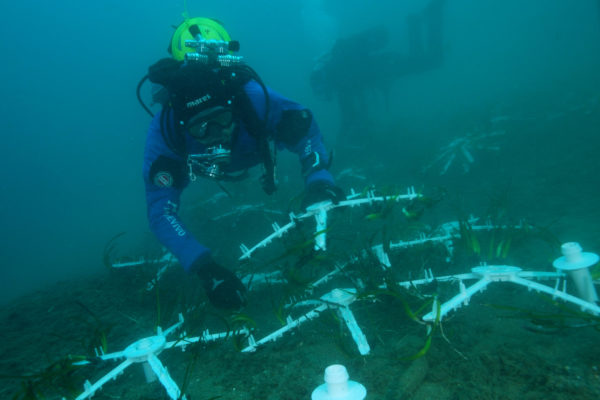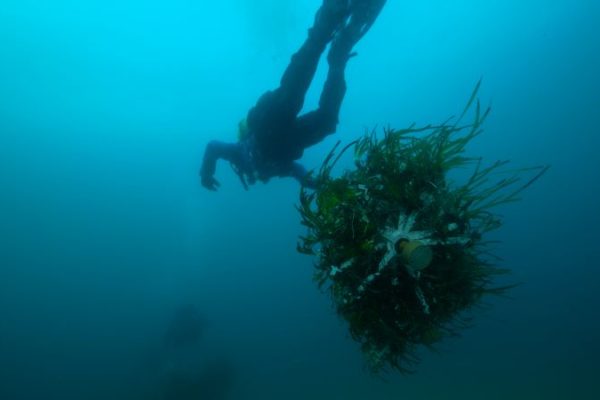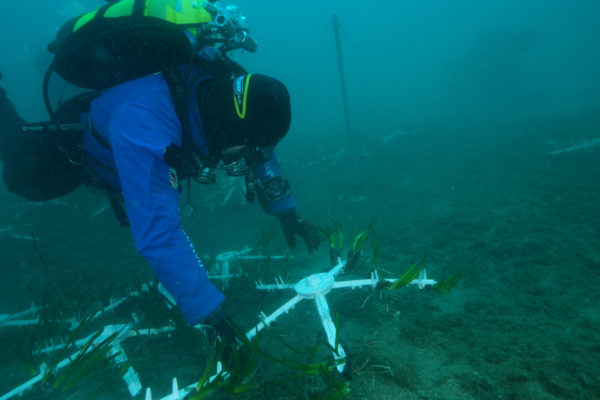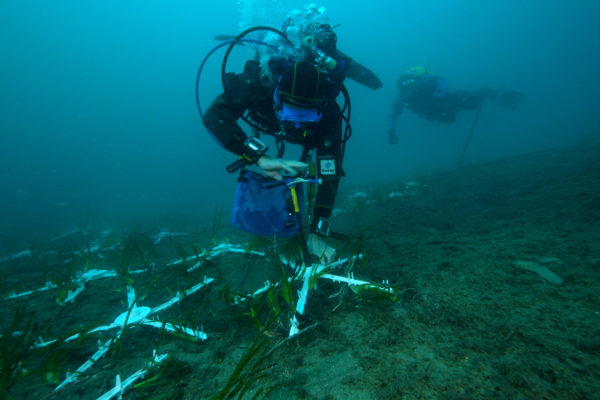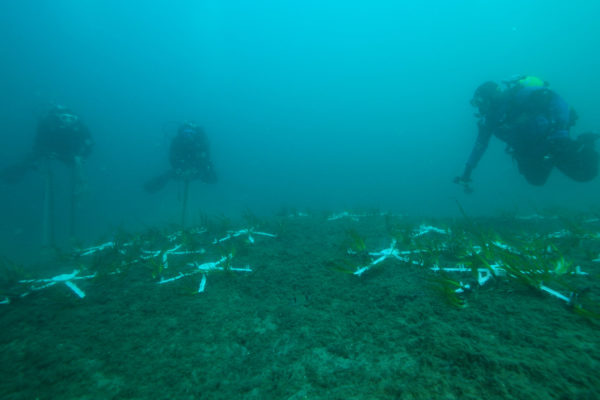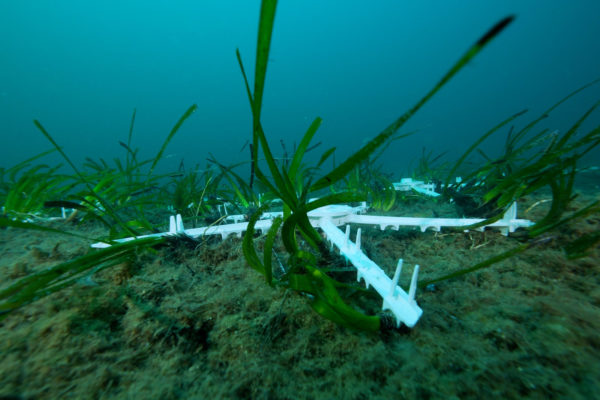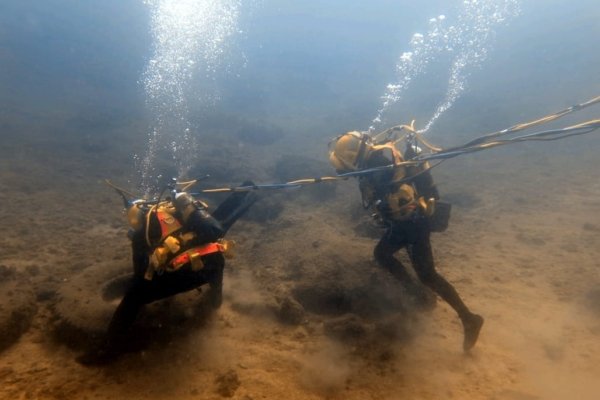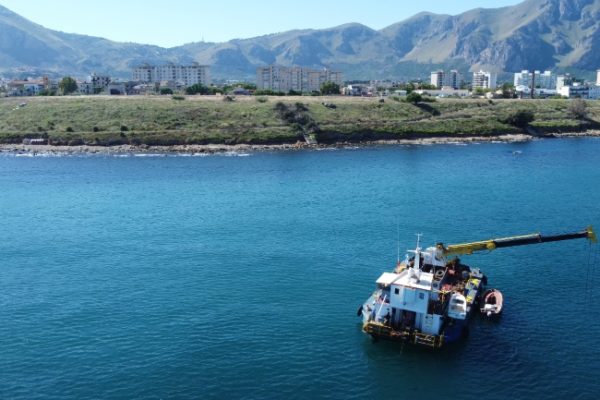“Regenerate” is the second phase of Marevivo’s project, made possible with the support of the 8×1000 funds from the Italian Buddhist Institute Soka Gakkai.
“Regenerate” begins: a key action of Marevivo’s project “3Rs for the Sea,” supported by the 8×1000 funds from the Italian Buddhist Institute Soka Gakkai. The initiative aims to protect and enhance marine biodiversity through restoration interventions that give new life to natural resources.
The reforestation of 100 square meters of Posidonia oceanica rhizomes has just been completed in the Gulf of Palermo, along the northwestern coast of Sicily, in the waters off the seaside village of Acqua dei Corsari (Bandita). This marine area, now degraded, once hosted a lush Posidonia meadow during the first half of the 20th century.
The goal is to restore a section of dead matte seabed at a depth of 13–14 meters by placing 78 anchoring modules, for a total of approximately 2,400 transplanted Posidonia bundles. The intervention uses an innovative anchoring system made from sustainable, biodegradable materials designed for low environmental impact.
According to available data, a restored Posidonia meadow of 100 square meters, once fully established, can absorb up to 8 tons of CO₂ per year. The site will be regularly monitored throughout the project’s 24-month duration to assess whether the transplantation has led to successful recovery.
Posidonia oceanica holds immense ecological value as an endemic species of the Mediterranean, forming vast underwater meadows that are among the most biodiverse and vital ecosystems in our sea. It is a highly sensitive indicator of environmental changes and, as a plant, produces oxygen and absorbs carbon dioxide, playing a key role in sustaining life on Earth. These meadows also support marine biodiversity by offering shelter and food: a single hectare can host up to 350 different marine species, including crustaceans, fish, and many others of ecological and economic importance.
“Reforestation efforts like the one we’ve just completed are just as vital as reforestation on land,” said Laura Gentile, Marevivo Project Manager and project coordinator. “In addition to producing over 50% of the oxygen we breathe and providing habitat and food for countless marine creatures, seagrasses are extremely effective carbon sinks—capturing carbon up to 35 times faster than terrestrial forests. This makes them a powerful ally in the fight against climate change. If these ecosystems are damaged or degraded, they lose their capacity to absorb carbon, and the stored carbon is released back into the atmosphere, contributing to CO₂ emissions with all their consequences.”
The project “3Rs for the Sea” aims not only to address environmental degradation—such as the recent removal of 116 illegally dumped large tires from the seabed off Acqua dei Corsari—but also to restore marine ecosystems through Posidonia reforestation and to raise awareness among young people through targeted environmental education activities in schools.
Regenerate, Recover, Respect: this is the essence of “3Rs for the Sea”—a project that promotes concrete action against marine pollution and fosters a culture of respect by educating students about biodiversity conservation. It aligns with the goals of the UN Decade on Ecosystem Restoration (2021–2030).
“The ‘3Rs for the Sea’ project fully reflects Buddhist principles of interdependence and respect for life in all its forms,” said Anna Conti, Vice President of the Italian Buddhist Institute Soka Gakkai. “Protecting biodiversity and the environment means recognizing that all living beings are connected, and our actions have far-reaching effects on the entire ecosystem. Initiatives like this help awaken in people—especially young people—a deep sense of awareness and responsibility toward the planet. For these reasons, we are proud to support this project as part of our environmental commitment.”

